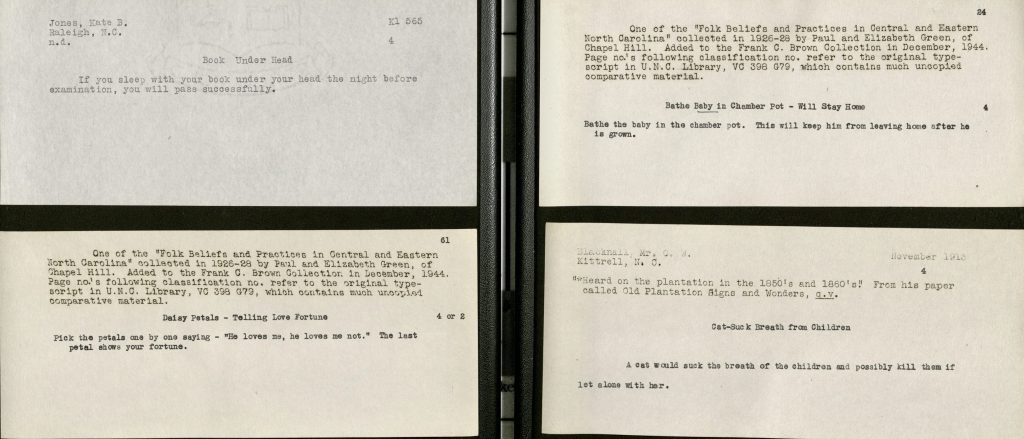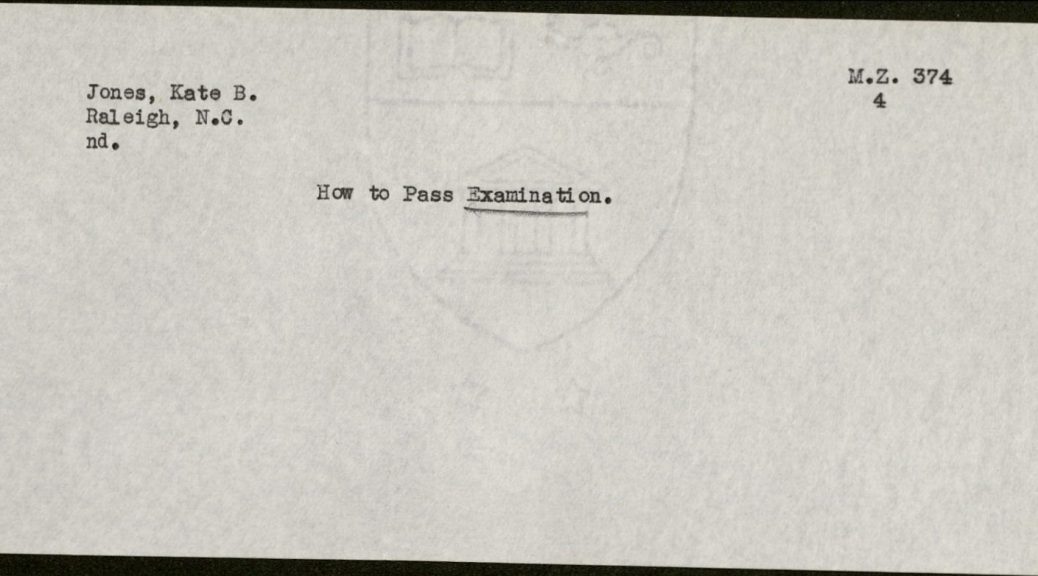Post contributed by Steph Crowell, Trent History of Medicine Intern.
Frank Clyde Brown was an English professor at Trinity College in 1909. Although, to call him just an English professor is a bit of a disservice- he was also the chairman of the English department, the University Marshal, the Comptroller of the University… he wore many hats while he was here. But, most importantly for today, he was an avid folklorist throughout his career.
He was so interested in North Carolina and Appalachian folklore that he helped to begin the North Carolina Folklore Society. Although busy with his many university roles, he still found the time to roam about North Carolina (or send his students to do so) and collect people’s stories and beliefs. The resulting collection of all these research materials, the Frank Clyde Brown Papers, 1912-1974, is absolutely massive. Alongside the huge print collection, there is a digitized collection of audio performances Brown collected during the course of his research- the physical wax cylinders and discs that they come from are still in the collection to be seen, but the only way to listen to them is through Duke’s Digital Repository.
But, in the spirit of the season, I took a look at box 45 of the print collection. Folk medicine is a wonderful and often strange portion of the history of medicine, and I quickly found that this collection reflected that idea. In this particular box are folders full of small pieces of paper that have bits of folk knowledge printed on them, as well as the source of that knowledge, be it a person or a book.

As you can see, some of these cures may not be quite what you expect. You couldn’t expect that washing your face with cool water may help alleviate a headache, but water that runs north? Why is that significant? Do beetles really only have two drops of blood in their bodies?
The thing that’s most interesting about this box is how the materials transition from folk medicine cures of diseases and insect bites into the supernatural. Some of these cures could arguably be called magical, but conceptually they still have to do with curing something wrong with the body- but what about spiritual health? What bad omens are out there that could impact my health? How do I know if he loves me or not? How can I get an edge on my exam tomorrow?

In a context where the supernatural is accepted and has an effect on one’s personal health, it also stands to reason that one should be afraid of witches. Someone who has the power to bedevil you against your will, curse you with bad luck, make you sick? Because of this fear, the next few folders that follow the common sense cures and the charms are things to directly deal with witches. There are counter-spells, ways of identifying witches, and, most importantly, ways to keep them as far away from you as possible.

It can be difficult these days to think that medicine can or should be magical, but in the spirit of the season I would invite you to try. These materials are available to you to look at with many more cures and curses, all you have to do is register and request and we’ll be happy to retrieve them for you.
A note about the collection: if you’re looking at the collection, just keep in mind that these papers directly quote real people; as such, there are a handful of these items that contain racial slurs and some other outdated language that we find offensive today.
Staff recommendations from the collection:
If you’re someone who’s more into stories, we would recommend checking out this paper on Witches in Old Salem, this one on vampires, or this one about werewolves.
Honorable mentions for Halloween:
The inspiration for the movie Poltergeist, Ruysch’s dancing skeletons and anatomical sketches, and some of our materials about the famous Lizzie Borden Case, which you can read about here.


